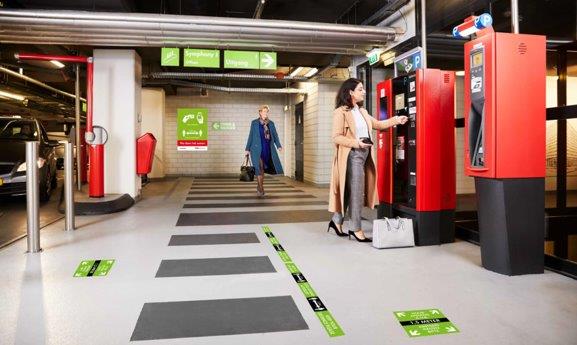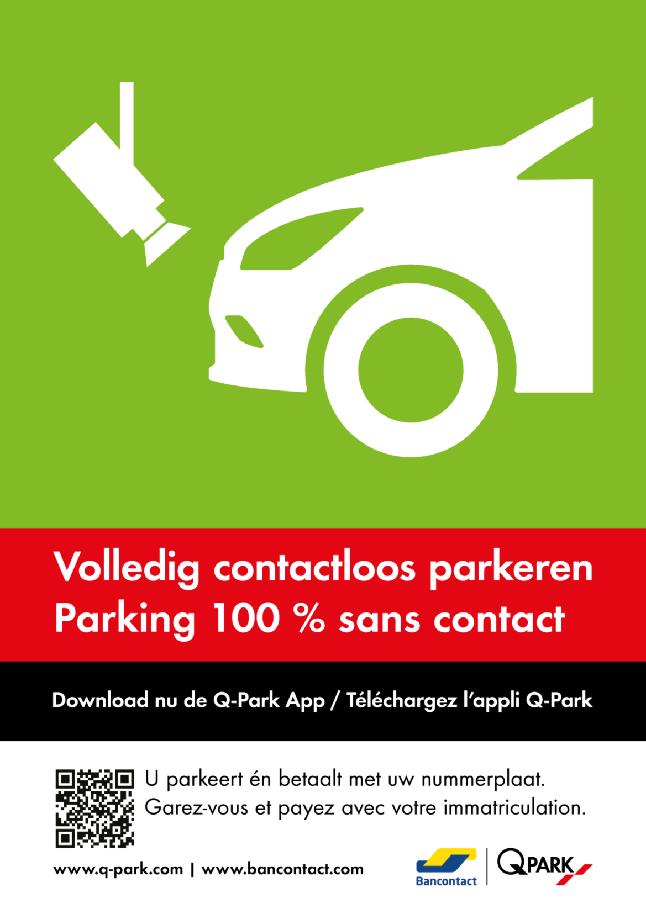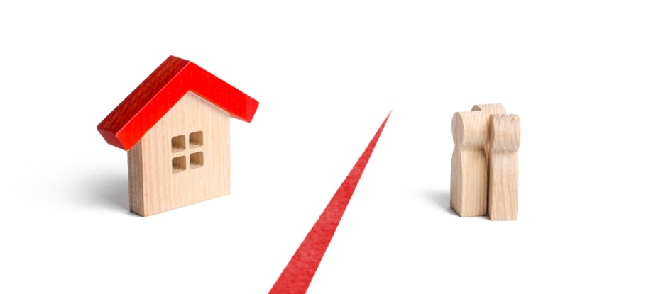The art of the possible

Resilience during the coronavirus crisis
Since March 2020, everyone in Europe has faced new and rapidly changing circumstances created by the novel coronavirus and due to lockdowns and limitations imposed by governments. Some industries are affected more negatively than others.
Even as lockdown eases, it is clear that passenger transport, leisure-related organisations and non-food retail have experienced immense disruption.
The same is true for the parking industry – when countries are in lockdown or impose restrictive measures to decrease the spread of the virus, people don't go places. Parking facilities are practically empty ... so what are we to do?
It is in times like these that Q-Park shows its resilience and its resolve to make the most of the situation. Q-Park’s commitment and care for the communities in which we operate means we will help wherever we can.
Here are some examples of our initiatives, we:
opened up our assets for a variety of healthcare needs;
accelerated implementing digital solutions;
created new products to serve emerging needs.

Fit for purpose
During the peak of the pandemic and as we move forward one day at a time, Q-Park continues to ensure that its parking facilities are fit for purpose.

Our car parks are clean. We publish relevant and up-to-date information online and at the parking facilities themselves. Parking Hosts keep their distance and Customer Service responds to customers’ needs as quickly as possible.


Car parks need to be fit for purpose as people perceive private cars to be the safest mode of transportation during the crisis.
Facilitating healthcare needs
COVID-19 test areas were set up in some car parks.
One car park was fully dedicated to a coronavirus reception centre. It was operated by general practitioners and healthcare institutions to accommodate patients suspected of having COVID-19.
Season tickets for healthcare professionals were upgraded to 24/7 status to ensure maximum flexibility at no additional cost.

COVID-19 test area in Q-Park Witte Dame, Eindhoven (NL). (Source: Sem Wijnhoven/DCI Media)
Accelerating our digital solutions (Cashless & Contactless)
We recommend our customers use contactless options to drive in and out of the car park. There are several contactless options available:
use a bankcard at access and exit terminals, or
use a parking app to park and pay by means of number plate recognition.
We promote cashless payment and even disabled cash payments in pay-stations with bankcard options where it made sense. And as many card issuers raised the contactless limit from EUR 30 to EUR 50, more customers park fully Cashless & Contactless.
We created economic and easy to find pre-booking propositions, our City Deals; welcoming visitors back to shopping and leisure amenities in a safe and smart way.

Creating new products to serve emerging needs
We expanded our season ticket range with Office Flex to serve hybrid home/office workers.
Our UK Parking Facilities offer bespoke and secure bicycle parking areas for employees, encouring cycling as an alternative to public transportation.
Pre-booking solutions offer organisations individual hospitality options and guarantee their customers a door-to-door contactless journey. Examples:
Wildlands Adventure Zoo – due to the pandemic, pre-booking is mandatory as the zoo needs to limit visitor numbers to ensure proper social distancing. Q-Park Netherlands created a bespoke pre-booking solution for parking based on number plate recognition, making the whole adventure as safe as possible.
Fiera restaurant at Handelsbeurs, Antwerp – a bespoke and ‘hidden’ partner specific proposition for lunch and dinner guests. Applicable for guests who book a table, enabling them to park safely and fully contactless under the restaurant.
Underground Event – as artists, bars and restaurants are hit hard by the pandemic measures, Q-Park Belgium wanted to create a safe podium and show support. We selected a local artist to provide musical entertainment, asked a local restaurant to arrange for food and drink and invited guests to attend. In this underground car park setting:
social distancing is guaranteed as people stay in their car;
human touchpoints are zero thanks to number plate recognition.

Office Flex to serve hybrid home/office workers.
Other points to note
Of course, we at Q-Park had some issues too. Some parking facilities closed their pedestrian doors to ensure that no unauthorised people could enter, keeping the parking facility safe for those who needed to be there.
Whenever possible we closed parking decks to reduce energy consumption and human touchpoints, allowing for cleaning efficiency.
When visitor numbers were very low and if an alternative car park was available nearby, we would close an entire parking facility and guide customers to the alternative.

Closing doors, parking decks or car parks – for safety, sustainability or economic reasons.
Coronavirus
Coronaviruses (CoV) are a large family of viruses that cause illnesses ranging from the common cold to more severe diseases. A novel coronavirus (SARS-CoV-2) was first identified in December 2019 in Wuhan, China and has resulted in an ongoing global pandemic. On 7 January 2020, WHO Europe, temporarily named this ‘2019-nCoV’.
The illness caused by the novel virus is known as ‘Coronavirus disease’ or COVID-19.
Source: World Health Organization Europe and Wikipedia

